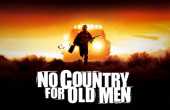JohnArthur
Contributing writer for The Artifice.
Junior Contributor II
- Articles
1 - Featured
0 - Comments
6
- Ext. Comments
3 - Processed
0 - Revisions
0
- Topics
1 - Topics Taken
0 - Notes
1
- Topics Proc.
0 - Topics Rev.
0
- Points
134 - Rank
X - Score
62
Latest Articles
Latest Topics
Regenerative Violence in Blood MeridianAnalyze the extreme violence in Cormac McCarthy's 1985 epic "Blood Meridian". Specifically, how does that violence inform a regenerative motif among the characters, the landscape, the reader? How could violent/destructive actions as a whole inform our understanding of the cyclical nature of destruction/creation? "Death is the mother of beauty" – Wallace Stevens
|
Latest Comments
| No Country For Old Genres: McCarthy, The Coens, and the Neo-Western | |
The omission of Bell’s narration from the beginning of each chapter in the novel is one of the biggest drawbacks of the film for me. The Coens did well to include at least some of the sheriff’s commentary in the opening scene (and again as the film ends), but I agree that something is lost. | No Country For Old Genres: McCarthy, The Coens, and the Neo-Western |
Betrayed its literary roots to its detriment? Could you elaborate? The scene you mention as “quite memorable” is actually one of the few in the film that isn’t in the novel. | No Country For Old Genres: McCarthy, The Coens, and the Neo-Western |
I’d be particularly interested in a time travel scenario wherein a disgruntled moviegoer travels back to the early 2000s, steals into the C2 Production Studio (where T3 was in its dawdling infancy) dressed in leather jacket and sporting a flattop haircut, and, using a pump-action shotgun hidden in a box of long stem roses, blows an enormous whole in the script, saying in a thick Austrian accent “Yule be bahd.” This franchise should have ended with T2, when creator/director James Cameron quipped that he’d “finished telling the story.” The recent trend of sequel/prequel/remake/reboot is a bit disturbing. Studios are deciding whether or not to produce films based on the potential for (blockbusting) sequels. The Terminator franchise is the film equivalent of a stiff and moribund Secretariat being mercilessly whipped by greedy Hollywood hopefuls. | The Four Timelines of The Terminator Movies |
There are a number of reasons why Draper was/is lionized by so many viewers. The series was first aired in 2007, when the national psyche was very much beginning to rally against the norms of the establishment – Draper represents someone who, while appearing to be a member of society’s upper crust, is in fact a complete fabrication. The entire existence of Donald Draper (as advertising executive) is false. Draper exudes sexual and professional charisma and confidence. Even if his admirers don’t approve of all of his actions, there is something to be said for aspects of his personality and certainly for his business acumen. Finally, Draper, like almost all of the characters in the show, holds for viewers the nostalgic ideal of an American past that we long for on some level. | Understanding The Vices Through Mad Men |
Having watched and loved Breaking Bad, I find this article and point of view particularly refreshing. I also fear it potentially misses the larger question of the series – many viewers dislike Skyler’s character but feel great sympathy and even admiration for Walt. Why? What does this reaction to a murderous drug dealer say about the state of our society as a whole? The arguments in favor of Walt’s actions are legion (the unfulfilled, dying genius seeks to provide for his family, etc.), but how can so much of the viewing population fall for a villain (myself included)? Breaking Bad’s first episode aired in 2008 – a period in our national history characterized by deep dissatisfaction with the establishment and a strongly subversive social undercurrent. Walter became a means by which people unhappy with “the system” could vicariously express their personal desires to break the rules. Skyler, conversely, is the voice of reason against which Walt (and we) wish to rebel. Calling Skyler “bitchy” is perhaps rancorously simplistic. Disliking her character and her role in the show means only that Gilligan successfully channeled the collective psyche of his viewers. | Refusal to Settle: Why I Love Skyler White |

Moss is the point of contention between Bell and Chigurh. He is only the catalyst for the film’s action, not the vehicle of its theme. The racial dichotomy is altered because the binary is reversed – the white people DON’T WIN. That’s the point.
Also, there isn’t a showdown in the sense of the traditional Western – there are no pistols at dawn for Moss/Bell and Chigurh, no dusty shootout in front of clapboard houses. Finally, Moss DOESN’T survive. He is killed by the Mexicans at the hotel (again, not a showdown, and again, a racial reordering). I don’t feel like that’s much of a stretch at all.